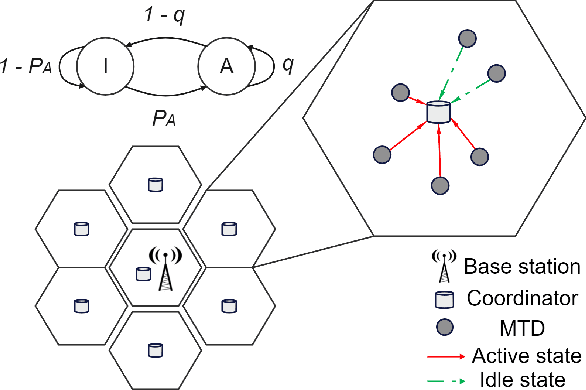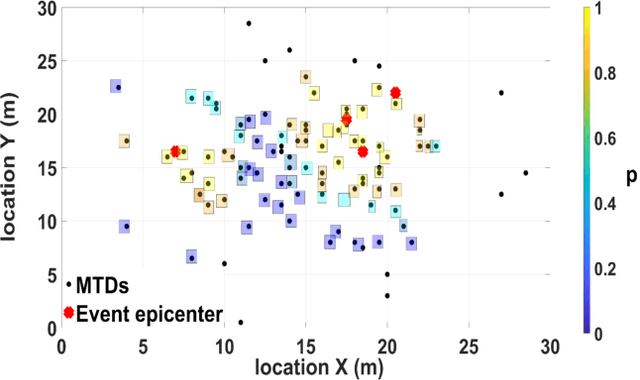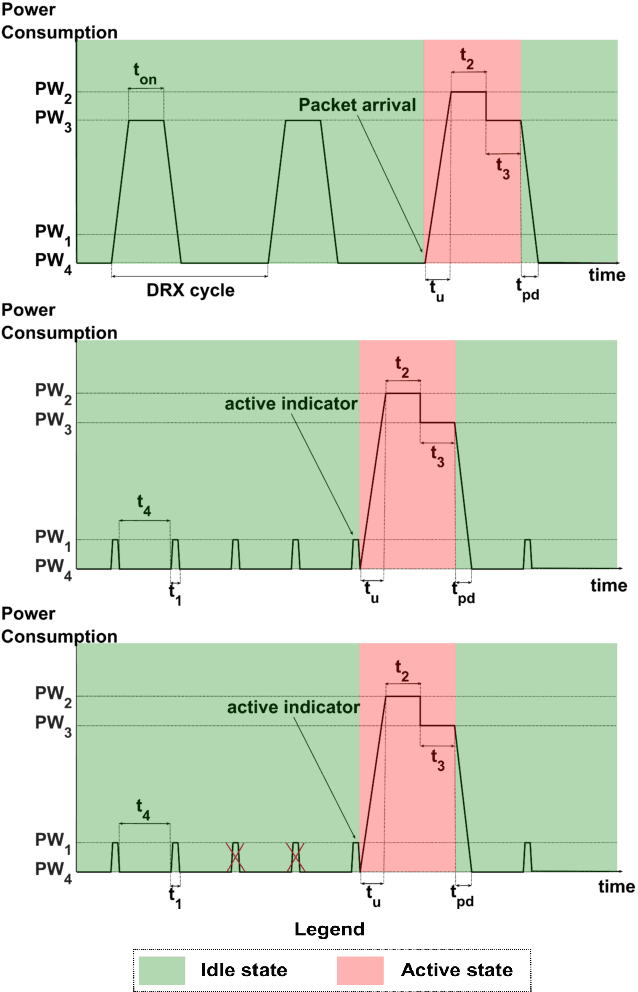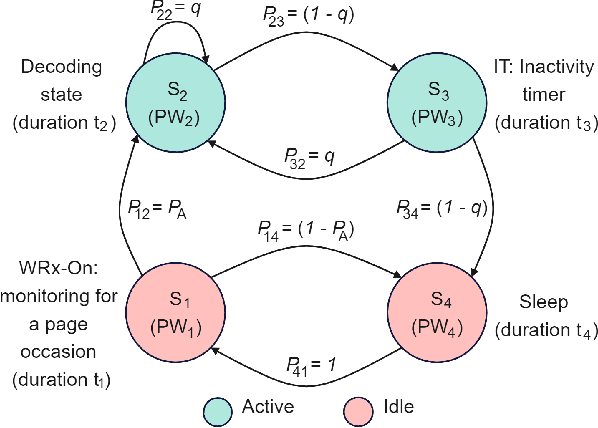David E. Ruíz-Guirola
Intelligent Duty Cycling Management and Wake-up for Energy Harvesting IoT Networks with Correlated Activity
May 10, 2024Abstract:This paper presents an approach for energy-neutral Internet of Things (IoT) scenarios where the IoT devices (IoTDs) rely entirely on their energy harvesting capabilities to sustain operation. We use a Markov chain to represent the operation and transmission states of the IoTDs, a modulated Poisson process to model their energy harvesting process, and a discrete-time Markov chain to model their battery state. The aim is to efficiently manage the duty cycling of the IoTDs, so as to prolong their battery life and reduce instances of low-energy availability. We propose a duty-cycling management based on K- nearest neighbors, aiming to strike a trade-off between energy efficiency and detection accuracy. This is done by incorporating spatial and temporal correlations among IoTDs' activity, as well as their energy harvesting capabilities. We also allow the base station to wake up specific IoTDs if more information about an event is needed upon initial detection. Our proposed scheme shows significant improvements in energy savings and performance, with up to 11 times lower misdetection probability and 50\% lower energy consumption for high-density scenarios compared to a random duty cycling benchmark.
Energy-Efficient Wake-Up Signalling for Machine-Type Devices Based on Traffic-Aware Long-Short Term Memory Prediction
Jun 13, 2022



Abstract:Reducing energy consumption is a pressing issue in low-power machine-type communication (MTC) networks. In this regard, the Wake-up Signal (WuS) technology, which aims to minimize the energy consumed by the radio interface of the machine-type devices (MTDs), stands as a promising solution. However, state-of-the-art WuS mechanisms use static operational parameters, so they cannot efficiently adapt to the system dynamics. To overcome this, we design a simple but efficient neural network to predict MTC traffic patterns and configure WuS accordingly. Our proposed forecasting WuS (FWuS) leverages an accurate long-short term memory (LSTM)- based traffic prediction that allows extending the sleep time of MTDs by avoiding frequent page monitoring occasions in idle state. Simulation results show the effectiveness of our approach. The traffic prediction errors are shown to be below 4%, being false alarm and miss-detection probabilities respectively below 8.8% and 1.3%. In terms of energy consumption reduction, FWuS can outperform the best benchmark mechanism in up to 32%. Finally, we certify the ability of FWuS to dynamically adapt to traffic density changes, promoting low-power MTC scalability
 Add to Chrome
Add to Chrome Add to Firefox
Add to Firefox Add to Edge
Add to Edge